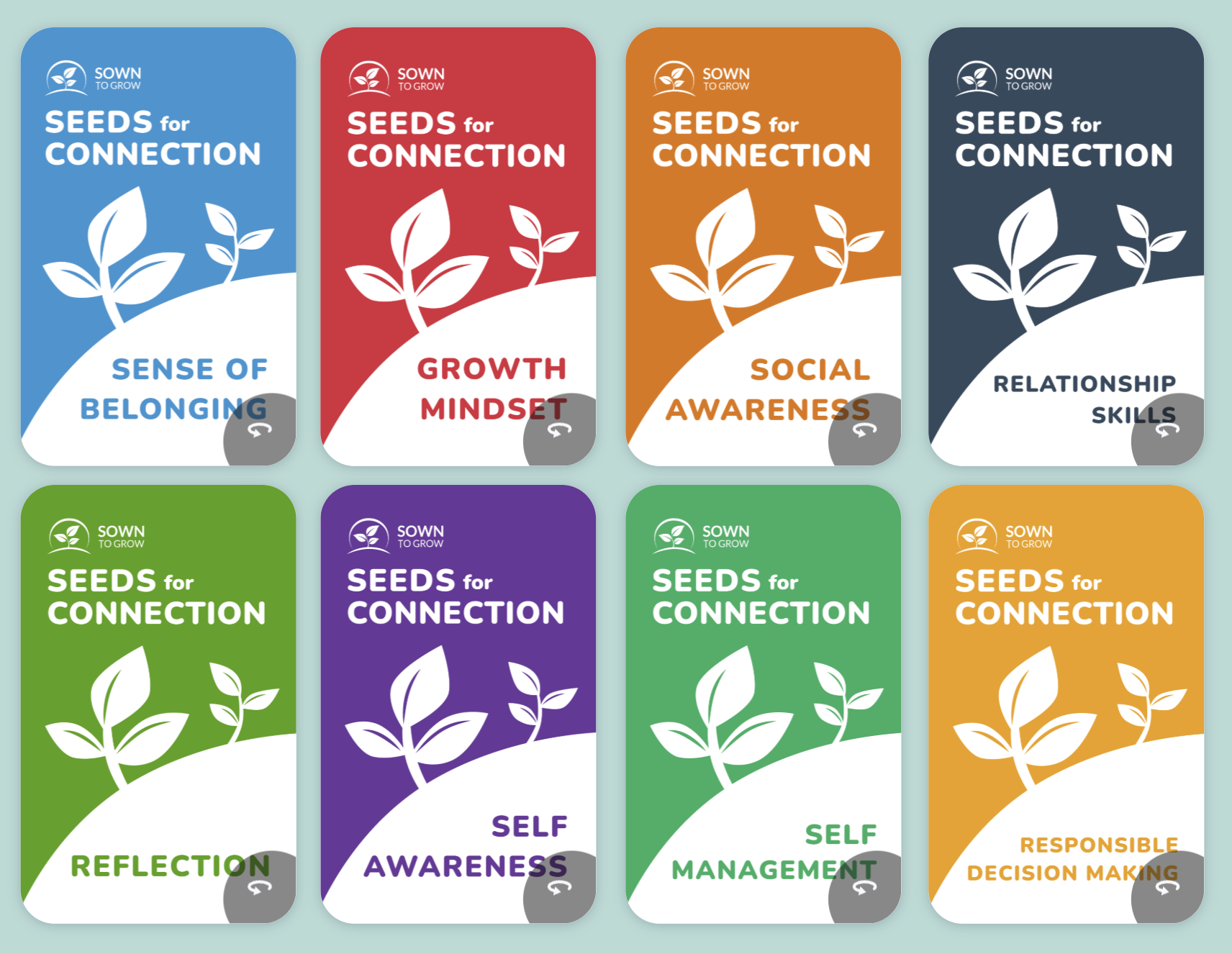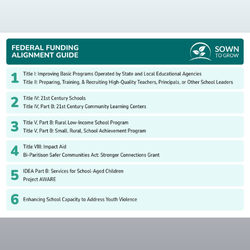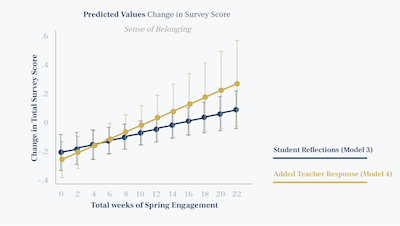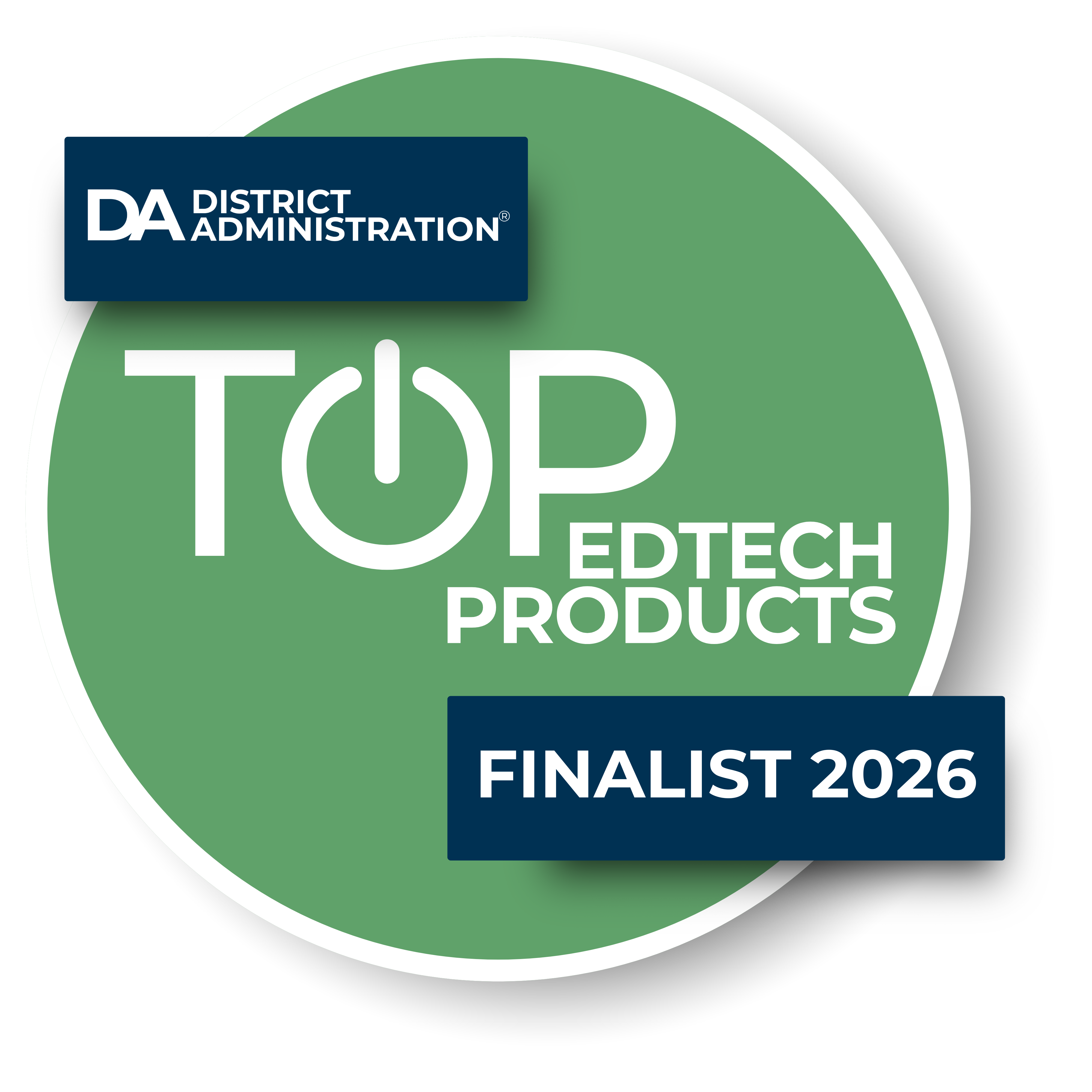Stronger Teachers, Stronger Students: The Case for Adult SEL

.png)
When we talk about well-being in schools, the focus is often on students—but what about the adults guiding them every day?
In light of the stress, burnout, and turnover in the field, supporting teachers' social and emotional health isn't just a ‘nice-to-have’, it's essential for student success.

This was the mindset of administrators at Pajaro Valley Unified School District, where more than 550 educators across 26 schools participated in Adult SEL sessions last year. The process was simple: complete the survey, analyze the results, and reflect on strengths and growth areas.
Below we’ll break down what they learned, why it was valuable, and how the information can be critical to improving a district’s overall well-being. But first, let’s begin by exploring the purpose and process of Adult SEL in any educational community.
Backed by clear research & evidence: Three main benefits to adult SEL
The connection between educator well-being and student success is undeniable—and the impact cascades far beyond individual classrooms.
As University of Missouri professor Dr. Reinke explained to NEA Today, when teachers are overwhelmed or unsupported, the entire learning environment suffers.
“If teachers struggle, instruction suffers, and students don’t learn as they should,” Reinke said. ”When there aren’t enough teachers, schools may hire uncertified staff or increase class sizes, making effective instruction and learning less likely. Disruptive behavior also spreads—kids in disorderly classrooms carry those habits into the next grade.”
Adult SEL programs aren’t an overnight fix for fractured school culture or teacher stress, but research shows the long-term benefits to increasing intentional reflection and learning are vast:
- Educators with strong social and emotional competence report higher levels of job satisfaction and less burnout.
- Focusing on SEL can help educators build and maintain stronger relationships with students and manage classrooms.
- Teachers who teach SEL to students report feeling more effective at their jobs and lower levels of job-related anxiety.
This growing body of evidence makes one thing clear: to truly support students, the educators who lead them must feel supported as well.
Inside the Adult SEL Journey: What sessions actually look like
If you’re not sure where or how to start exploring this initiative, various platforms offer an engaging, interactive, and accessible entry point to begin the journey. Selecting Sown To Grow’s Adult SEL program, which anchors on the CASEL Framework and focuses on the five core competencies of SEL, is a solid start.

The administrator segment of Sown To Grow’s system includes a four-session process that guides school and district leaders through understanding and applying adult and student SEL data—from district-wide insights down to individual classrooms.

By developing their own SEL capacity and using this data to inform MTSS strategies, administrators are better equipped to support teacher well-being and, in turn, create stronger, more supportive environments for students to thrive.
As for the teacher segment of Sown To Grow’s system, the CASEL Framework (mentioned above) serves as the foundation. The structured, reflective sessions not only support the development of key adult SEL competencies, but teachers also discover how to apply data to student learning, and identify strategies to bring back to the classroom.

By strengthening their own SEL skills, teachers can more adequately model and support social-emotional growth in students, leading to more connected, emotionally safe, and effective learning environments.
Outcomes Into Actions: PVUSD’s results, learnings and next steps
Making the decision to explore Adult SEL as a district is a powerful step to build belonging and create a caring culture.
However, the greatest evolutions take place when there’s a genuine, vested interest in the work by each individual, said Dr. Zaia Vera, Executive of District Partnerships and Scaled Impact at Sown To Grow, and former SEL district leader.
“Research shows that many educators simply need to give themselves permission to engage in this work,” said Dr. Vera, who also teaches Adult SEL at the University of California, Berkeley. “It helps to provide time and space for their own self reflection and SEL capacity building, and when teachers give themselves this opportunity, there is a statistically significant increase in teacher wellbeing."
One reason the first phase of Adult SEL went so well at PVUSD is because they adopted this exact kind of genuine approach when partnering with Sown To Grow, said Kate Coulouras, Director of Training & Implementation.
“What I thought was really unique is that their teachers and administrators were very reflective and metacognitive about going on this journey with the kids together,” Coulouras said. “By taking the survey as adults, they wanted to better understand the students through their shared experience.”
Although every district’s specific data insights should remain their own, a basic summary of PVUSD’s Year 1 adult and student survey results depicted the following:

“This information is really powerful, as it provides the bright spots to continue to hinge on,” explained Coulouras. “And while the growth areas can be tough to see at first, no district is perfect, and the data can be a strong call to action for leaders, and the entire community.”
Using these results to their advantage, PVUSD increased their scores in both growth areas when repeating the assessment in Year 2. By investing the time and care to reflect, learn and improve, an awareness was born, and the desire to elevate SEL skills flourished.
While there’s still work to be done for PVUSD’s students and educators in order to continue growth in indicators across all five competencies, the understanding of the value of this work now exists.
Invest in Educators to Transform Communities: The lasting impact of prioritizing adult SEL
The experience at PVUSD proves that when educators are given the time, space, and support to build their own SEL capacity, igniting the spark for real change is possible.
This organizational belief also inspired the creation of Sown To Grow's Seeds For Connection cards, a CASEL compentency-aligned deck containing 52 reflection prompts for adults—perfect for PDs, PLCs, and more.

Adult SEL isn’t a quick-fix, but it is a powerful and proven pathway to stronger connections, healthier school cultures, teacher retention, and better long-term outcomes for everyone. When districts invest in the well-being of those who lead, they ultimately invest in every student they serve.



.png)
.png)
.png)








